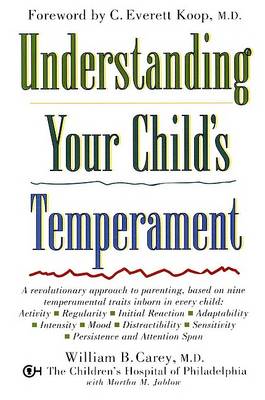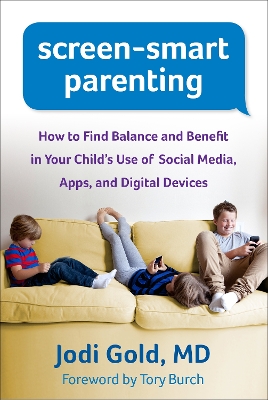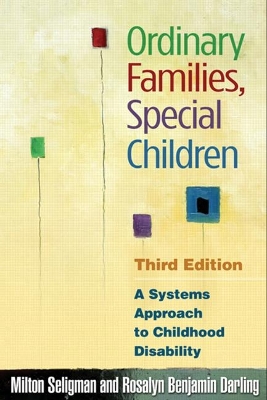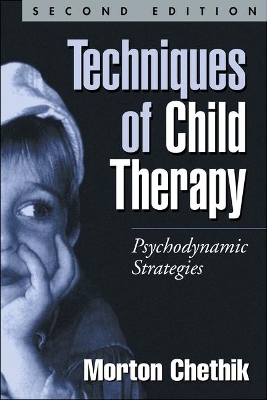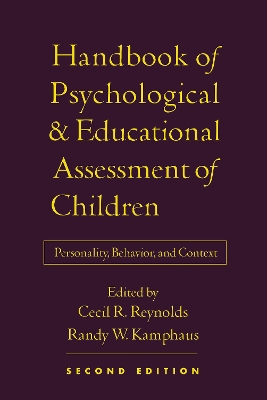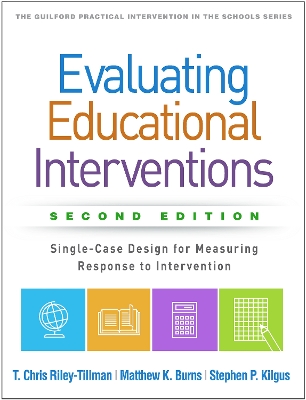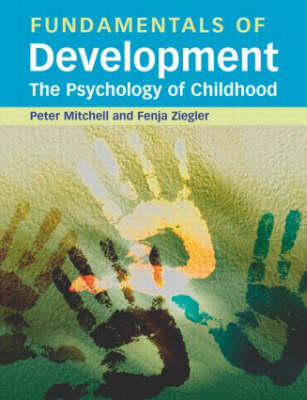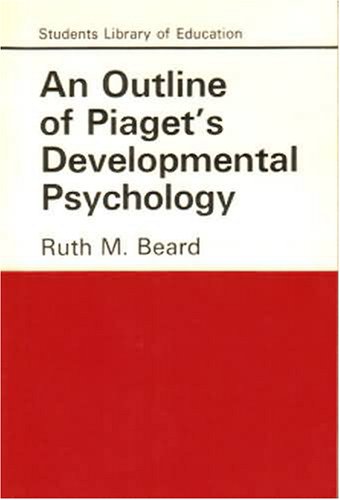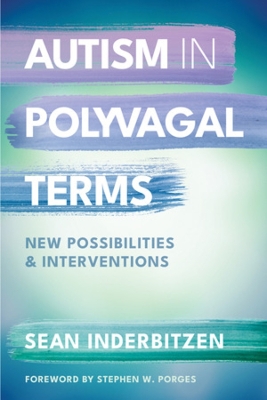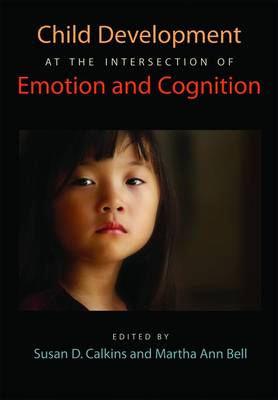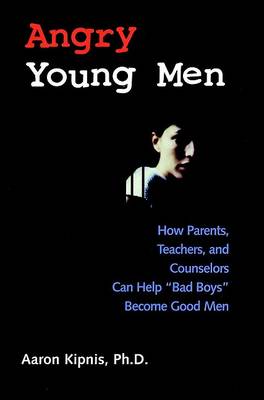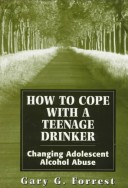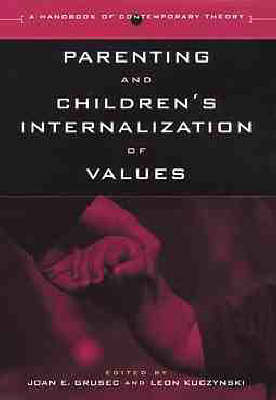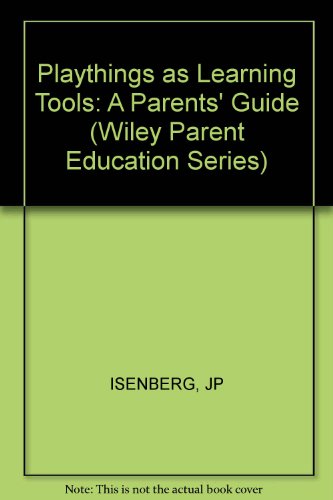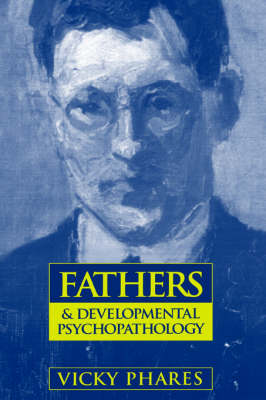"This book ... should revolutionize parenting for many readers." --Former U.S. Surgeon General Dr. C. Everett Koop, from the Foreword From a Respected Pediatrician Comes This Liberating Approach to Parenting Dr. William B. Carey, director of Behavioral Pediatrics at the renowned Children's Hospital of Philadelphia, brings important research to the public in this enlightening book. Unlike many approaches to parenting that view children in relation to just one particular trait or behavior, Underst...
As a practicing child psychiatrist and mother of three, Jodi Gold has a unique understanding of both the mind-boggling benefits and the serious downsides of technology. Dr. Gold weaves together scientific knowledge and everyday practical advice to help you foster your child's healthy relationship to technology, from birth to the teen years. You'll learn: *How much screen time is too much at different ages. *What your kids and teens are actually doing in all those hours online. *How technology af...
Ordinary Families, Special Children, Third Edition
by Milton Seligman and Rosalyn Benjamin Darling
This popular clinical reference and text provides a multisystems perspective on childhood disability and its effects on family life. The volume examines how child, family, ecological, and sociocultural variables intertwine to shape the ways families respond to disability, and how professionals can promote coping, adaptation, and empowerment. Accessible and engaging, the book integrates theory and research with vignettes and firsthand reflections from family members.
This practical text offers an in-depth examination of major issues in child psychotherapy and highlights frequently encountered challenges in working with children and parents. Basic concepts of adult dynamic psychotherapy--such as the therapeutic alliance, resistance, transference and countertransference, and insight--are redefined and adapted to the special requirements of therapy with 4- to 12-year-olds. Readers are guided through a number of cases as treatment unfolds, gaining insight into a...
Handbook of Psychological and Educational Assessment of Children, Second Edition
The two volumes of the Handbook of Psychological and Educational Assessment of Children, Second Edition, cover all aspects of child and adolescent assessment. Leading clinical scientists summarize the state of the science of assessment paradigms, instruments, and methods. With an emphasis on practical clinical considerations, chapters also delve into issues related to test development, psychometrics, and bias. Conveniently designed for reference or text use, this vast knowledge base has been syn...
This innovative guide is now in a revised and expanded second edition with an even stronger applied focus. It helps educators harness the potential of single-case design (SCD) as a critical element of data-based decision making in a multi-tiered system of support (MTSS). The authors present simple and complex SCDs and demonstrate their use to defensibly document the effects of academic or behavioral interventions. In a convenient large-size format, the book includes reproducible graphs and other...
Fundamentals of Development: The Psychology of Childhood outlines the main areas of developmental psychology, following a thematic approach and offering a broad overview of contemporary interest in the subject. Straightforward language and ample illustrations introduce the reader to the key areas in child development. The material is carefully organized to be as student-friendly as possible. Each chapter addresses a topic, such as perception, verbal communication, and theory of mind. Therefore,...
An Outline of Piaget's Developmental Psychology (Students Library of Education)
by Ruth M. Beard
Temperamental Differences in Infants and Young Children (Ciba Foundation Symposium)
By presenting the autism diagnosis through the lens of a disordered nervous system—that is, by applying Polyvagal Theory—this book opens new avenues for intervention and treatment, while challenging age-old assumptions of what autism means and how it presents itself. Here, Sean Inderbitzen—a therapist as well as someone living with autism—encourages clinicians to conceptualise their autistic clients’ difficulties with social interactions and cognitive flexibility through a polyvagal lens. Inderb...
This is a book about writing, fantasising and marvelling. The 130 writing exercises included can be used both at school and at home, in both amusing and serious situations, alone or in a group. The example texts written by children and adolescents serve to stimulate one's fantasy and help to open up the field of creative writing. One can play with language and with one's own fantasy; one can discover the world inside and outside with all of one's senses; one can then write down what has been see...
Child Development at the Intersection of Emotion and Cognition
by Susan D. Calkins and Martha Ann Bell
This volume addresses the codevelopment of emotional and cognitive processes by integrating theoretical and empirical work on these processes. Developmental theorists have long speculated that emotion and cognition are inseparable components of the developmental process. Some even suggest that the two components are fully integrated by school age. Yet, despite considerable theoretical work describing this interaction, relatively little empirical work has been conducted on the subject. The f...
Drawing on an ancient tradition, Rudolf Steiner referred to four fundamental 'types' or 'temperaments' in the human personality, each of which, he said, has different personal needs and ways of relating socially.From her experience of working with children of all ages, Marieke Anschütz provides a guide to children's different temperaments and their role in child character, health and personality development.The book includes illustrations from home and school, in the context of the Steiner-Waldo...
Writing from personal and professional experience, Aaron Kipnis shares both the riveting story of his own troubled youth--and how he turned himself around--and the successful approaches he has used to help "bad boys" become good men. Angry Young Men offers specific, practical advice for parents, teachers, counselors, community leaders, and justice professionals---- everyone who wants to help at--risk boys become strong, productive, caring, and compassionate men."Angry Young Men is an extremely i...
Understanding & Managing Overactive Children (Special Education)
by Don H Fontenelle
Alcohol abuse among teenagers has reached epidemic proportions in the United States in the past few years. Youngsters are starting to drink earlier than ever - typically at age thirteen or fourteen - and more of them, both boys and girls, are drinking to intoxication on a regular basis. "How to Cope with a Teenage Drinker" is addressed primarily to the parents of the teenage boy or girl who has developed a pattern of alcohol abuse, but it is of relevance to any friend or relative of a youngster...
Parenting and Children's Internalization of Values
PARENTING AND CHILDREN'S INTERNALIZATION OF VALUES The term "family values" has lately become a catchphrase in the political arena. However, while it is widely accepted that parents play a crucial role in children's development of social and moral values, the mechanisms through which values are acquired are more difficult to pin down. Recent research points to significant limitations and needed additions to the view that has held sway in the psychological community for the past quarter century,...
Playthings as Learning Tools (Wiley parent education)
by Joan P. Isenberg and Judith E. Jacobs
Fathers and Developmental Psychopharmacology (Wiley Series on Personality Processes)
by Vicky Phares
Although much has been written about how mothers influence their children's behavioral and emotional problems, the role of fathers in both the normal and abnormal development of children has long been neglected. This book is the first to explore theory and research on the father's role in children's maladjustment.
An introductory text on the study of growth and motor behavior in children. It provides thorough treatment of the entire field and includes broad coverage of motor development from pre-school through eighth grade (ages 3-12) and a conceptual model that allows for a systematic approach.
This revision of the successful text draws on the latest research in all areas of the field, including biology and biochemistry, neurology, psychology, and sociology. Presenting the concepts of "motivation" and "emotion" as related aspects of the same general phenomena, it examines the basic biological and physiological systems underlying motivational and emotional responses, emphasizing how these interact with cognitive and other "higher order" processes. This background is applied to a series...
